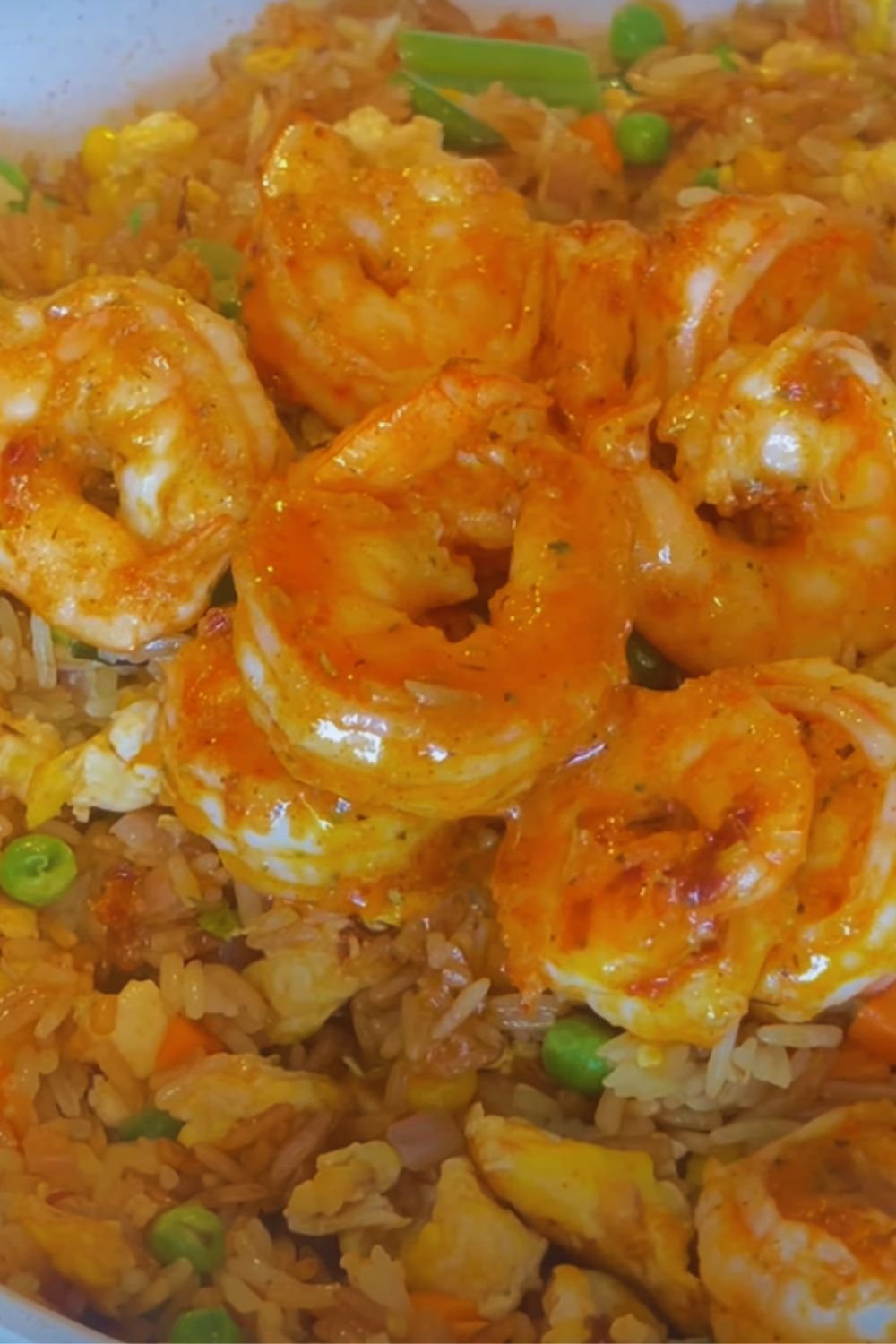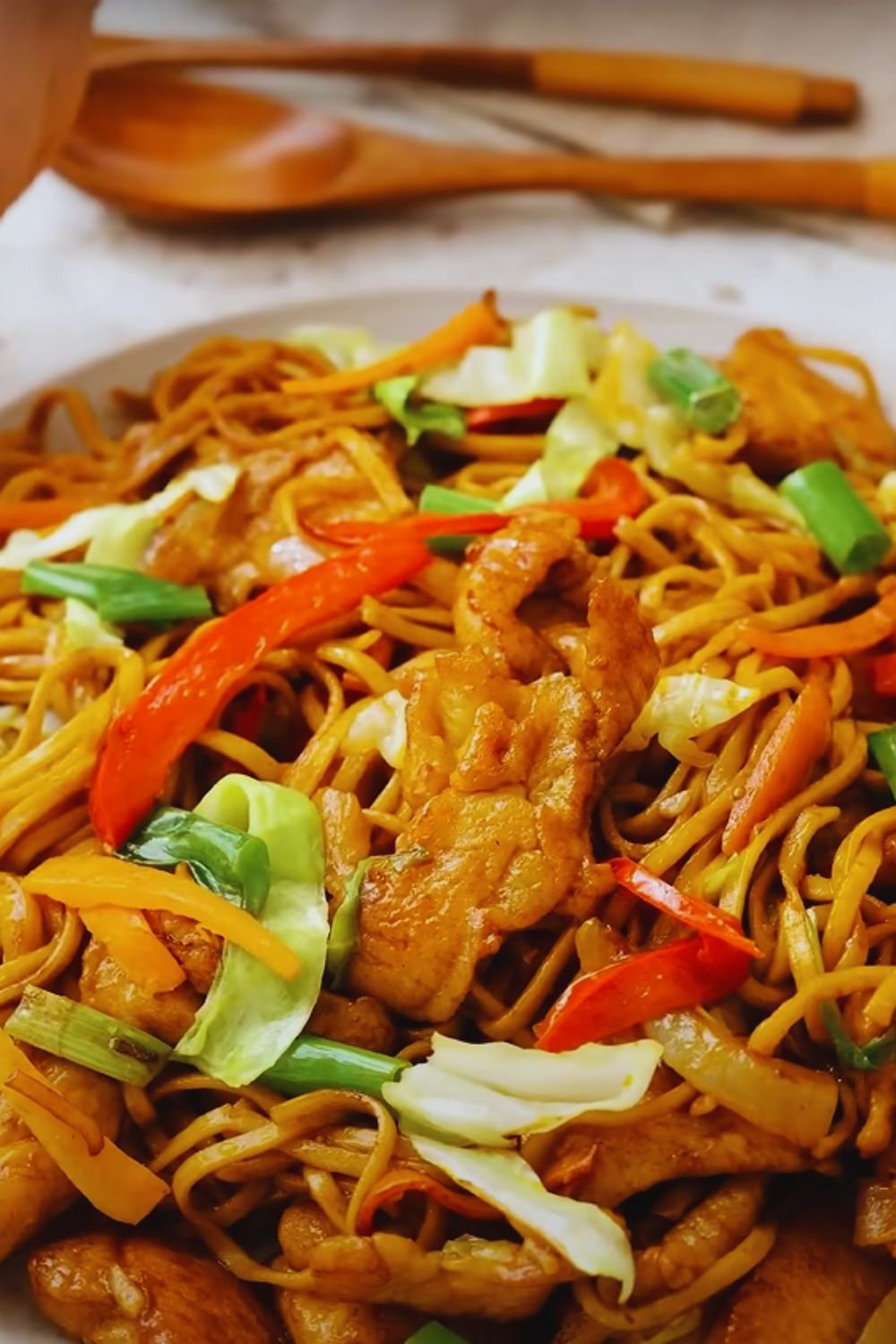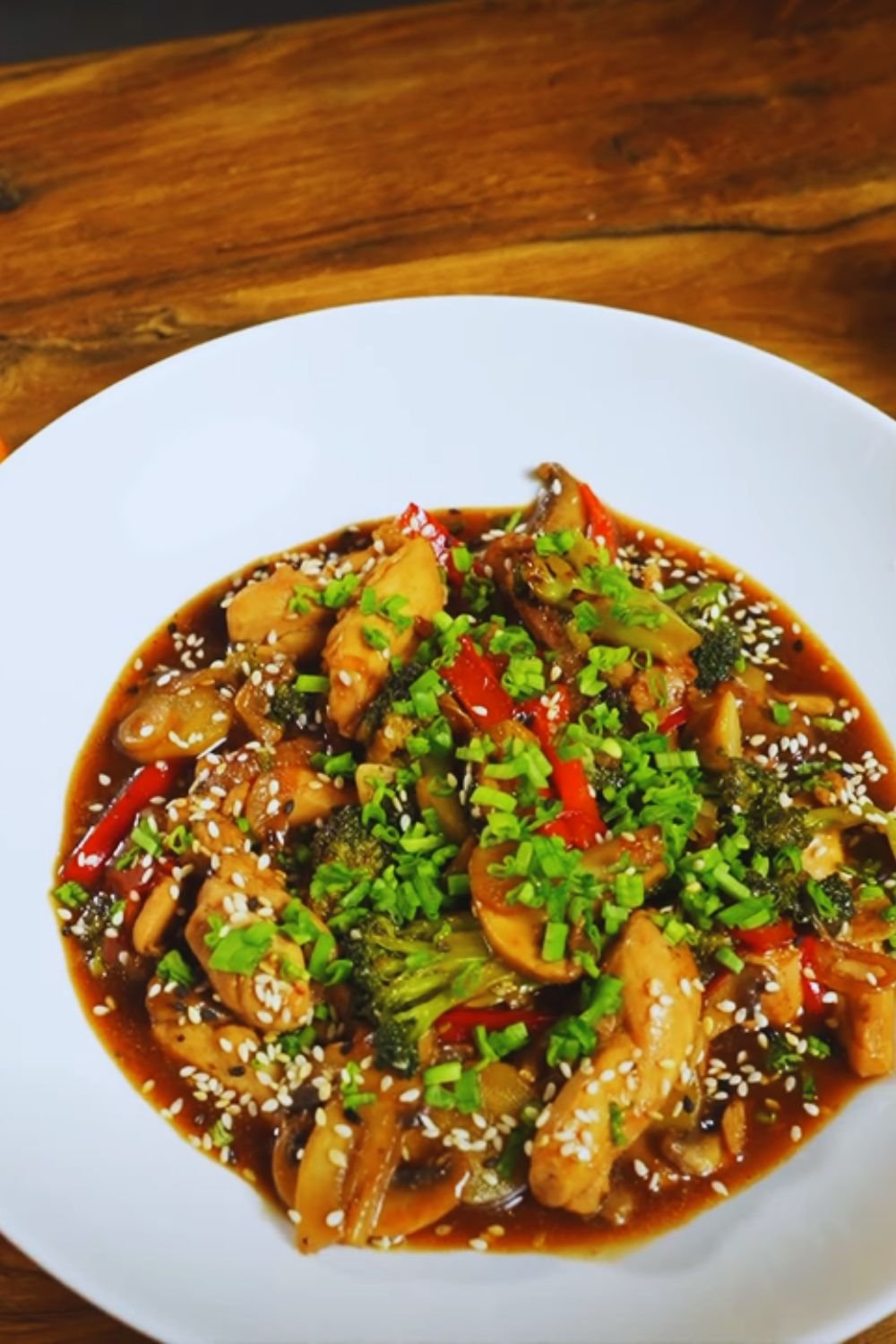Have you ever wondered why restaurant fried rice tastes so much better than what you make at home? After years of experimenting and learning from professional chefs, I’ve finally cracked the code. Today, I’m sharing my ultimate fried rice recipe that will rival your favorite takeout spot. Get ready to transform your leftover rice into something extraordinary!
Why This Recipe Works
Before diving into the recipe, let me share why this method produces exceptional results every time. The secret lies in understanding the science behind perfect fried rice. Through countless attempts and refinements, I’ve identified the critical factors that make restaurant-style fried rice so irresistible.
The Key Elements
- Rice Temperature and Texture
- Wok Hei (The “Breath of the Wok”)
- Ingredient Preparation
- Timing and Technique
Essential Ingredients
Let’s break down what you’ll need to create this magical dish:
| Ingredient | Amount | Notes |
|---|---|---|
| Day-old jasmine rice | 4 cups | Must be refrigerated overnight |
| Eggs | 3 large | Room temperature |
| Chinese sausage (lap cheong) | 2 links | Diced (optional) |
| Carrots | 1 medium | Finely diced |
| Green onions | 4 stalks | Separated whites/greens |
| Frozen peas | 1/2 cup | Thawed |
| Garlic | 4 cloves | Minced |
| Ginger | 1 inch | Finely grated |
| Neutral oil | 3 tablespoons | High smoke point |
| Soy sauce | 2 tablespoons | Premium light soy |
| Dark soy sauce | 1 teaspoon | For color |
| Sesame oil | 1 teaspoon | Added at the end |
| White pepper | 1/4 teaspoon | Freshly ground |
| Salt | To taste | Start with 1/4 teaspoon |
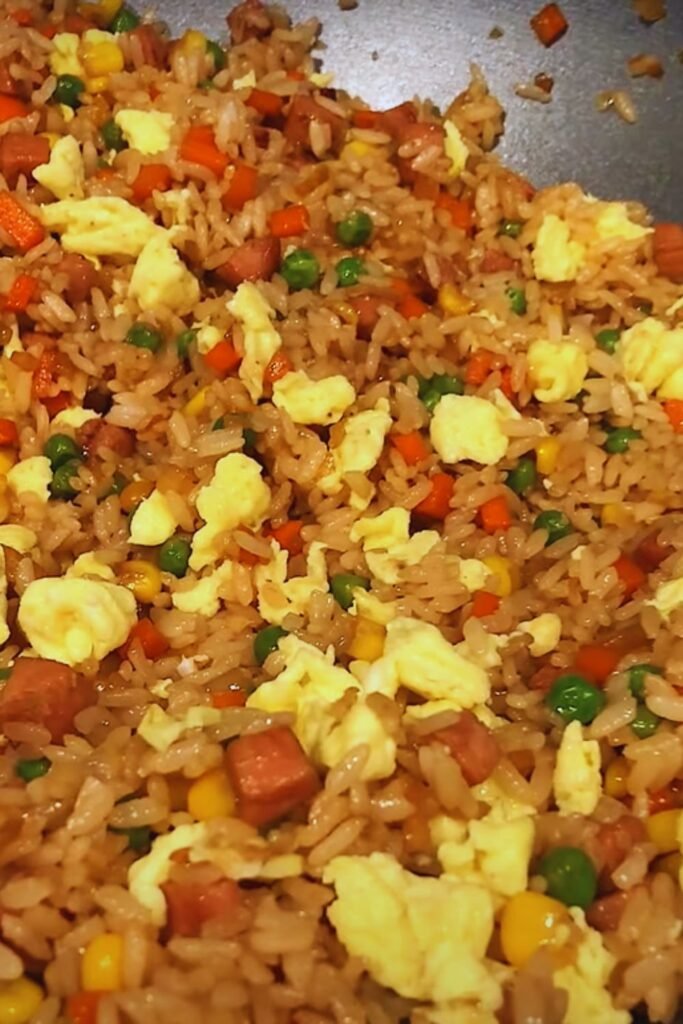
The Perfect Rice Base
The foundation of great fried rice starts with the right rice preparation. Here’s my foolproof method:
- Cook jasmine rice using the 1:1.25 rice-to-water ratio
- Spread on a baking sheet to cool completely
- Refrigerate overnight uncovered
- Break up any clumps before cooking
Why Day-Old Rice?
Fresh rice contains too much moisture, leading to mushy fried rice. The overnight drying process allows the grains to firm up, ensuring each grain remains separate when fried. This creates that coveted restaurant-style texture we’re after.
Step-by-Step Cooking Process
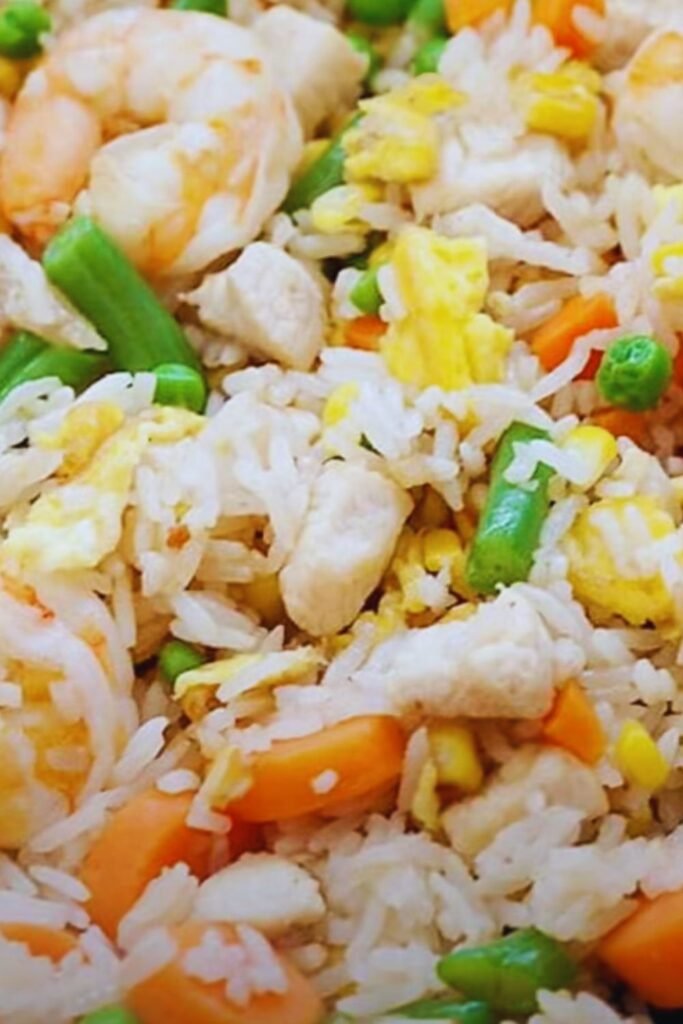
Preparation Phase (15 minutes)
- Break up the cold rice with your fingers
- Prep all vegetables and proteins
- Mix sauces in a small bowl
- Heat your wok or large skillet until smoking
Cooking Phase (10 minutes)
- Heat oil until shimmering (2 minutes)
- Cook eggs into a loose scramble (1 minute)
- Remove eggs and set aside
- Stir-fry aromatics (30 seconds)
- Add proteins (2 minutes)
- Add vegetables (1 minute)
- Incorporate rice (2 minutes)
- Season and combine (1 minute)
- Final adjustments (30 seconds)
Professional Tips
Throughout my journey to perfect this recipe, I’ve learned several crucial techniques:
- Temperature Control
- Your wok should be hot enough that water droplets instantly evaporate
- Listen for the distinctive “wok hei” sizzle
- Rice Handling
- Never overload your wok
- Use a scooping and tossing motion
- Keep ingredients moving constantly
- Seasoning Balance
- Start with less sauce than you think you need
- Adjust seasonings at the very end
- White pepper provides authentic flavor
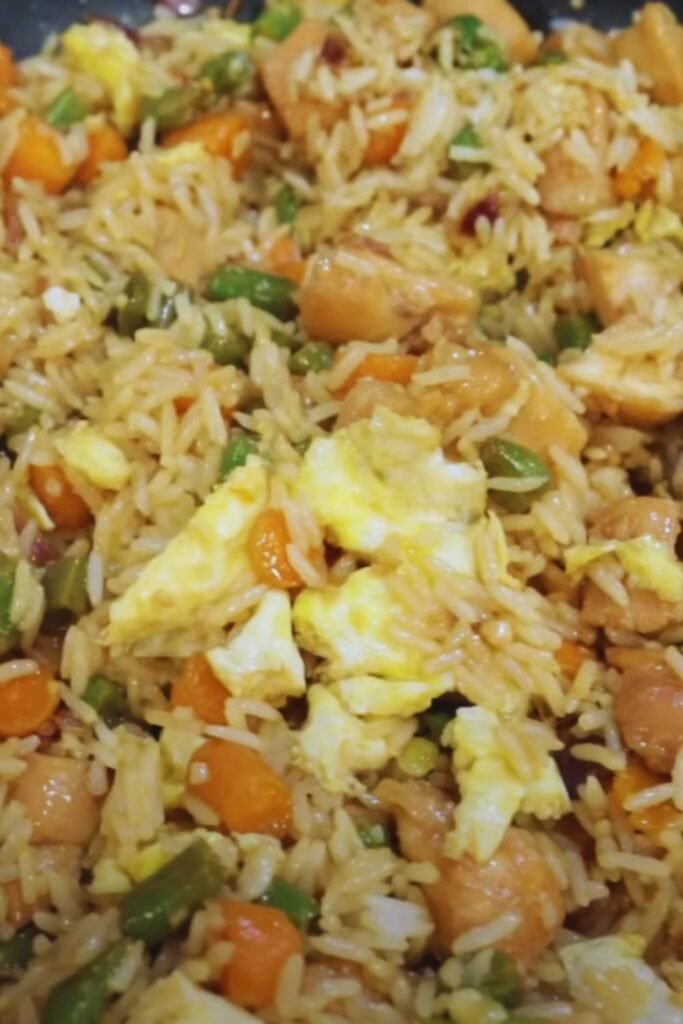
Common Mistakes to Avoid
I’ve made every possible mistake while perfecting this recipe. Here are the most critical ones to avoid:
- Using warm or fresh rice
- Overcrowding the wok
- Adding too much sauce
- Not prepping ingredients beforehand
- Using low heat
- Stirring instead of tossing
Serving Suggestions
Serve your fried rice immediately in warmed bowls. I like to garnish with:
- Extra scallion greens
- Crispy fried shallots
- A sprinkle of white pepper
- Pickled vegetables on the side
Storage and Reheating
Store leftover fried rice in an airtight container for up to 3 days. To reheat:
- Sprinkle with a few drops of water
- Cover and microwave in 30-second intervals
- Stir between intervals
- Finish with a drizzle of fresh sesame oil
Frequently Asked Questions
Q: Can I use fresh rice if I’m in a hurry?
No, fresh rice will give you mushy results. If you’re really pressed for time, cook your rice in the morning, spread it on a baking sheet, and refrigerate uncovered for at least 6 hours.
Q: Why does restaurant fried rice have a smoky flavor I can’t achieve?
That’s the famous “wok hei” or breath of the wok. It comes from using extremely high heat and proper wok tossing technique. While difficult to fully replicate at home, using high heat and the right motion will get you close.
Q: My rice always clumps together. What am I doing wrong?
This usually happens when the rice is too wet or the wok isn’t hot enough. Make sure your rice is properly dried and your wok is smoking hot before starting.
Q: Can I make this recipe vegetarian?
Absolutely! Replace the Chinese sausage with mushrooms, tofu, or your favorite meat alternative. The technique remains the same.
Q: How do I prevent the rice from sticking to my wok?
Season your wok properly before cooking, use sufficient oil, and most importantly, keep the rice moving constantly while cooking.
Making Ahead and Scaling
For larger gatherings, I recommend cooking in batches:
| Number of Servings | Rice Amount | Cooking Time |
|---|---|---|
| 2-3 people | 4 cups | 10 minutes |
| 4-6 people | 8 cups | Two 10-minute batches |
| 8-10 people | 12 cups | Three 10-minute batches |
Remember: Never try to cook more than 4 cups of cooked rice at once, as this will lower the wok temperature too much and prevent proper frying.
Variations
While this base recipe is fantastic, here are some of my favorite variations:
- Kimchi Fried Rice
- Add 1 cup chopped kimchi
- Include 2 tablespoons kimchi juice
- Top with nori strips
- Thai-Style
- Use fish sauce instead of soy
- Add holy basil
- Include bird’s eye chilies
- Yang Chow Style
- Include char siu pork
- Add small shrimp
- Mix in bamboo shoots
Remember, great fried rice is about technique more than ingredients. Master the basic method, and you can create endless variations to suit your taste. Happy cooking!
